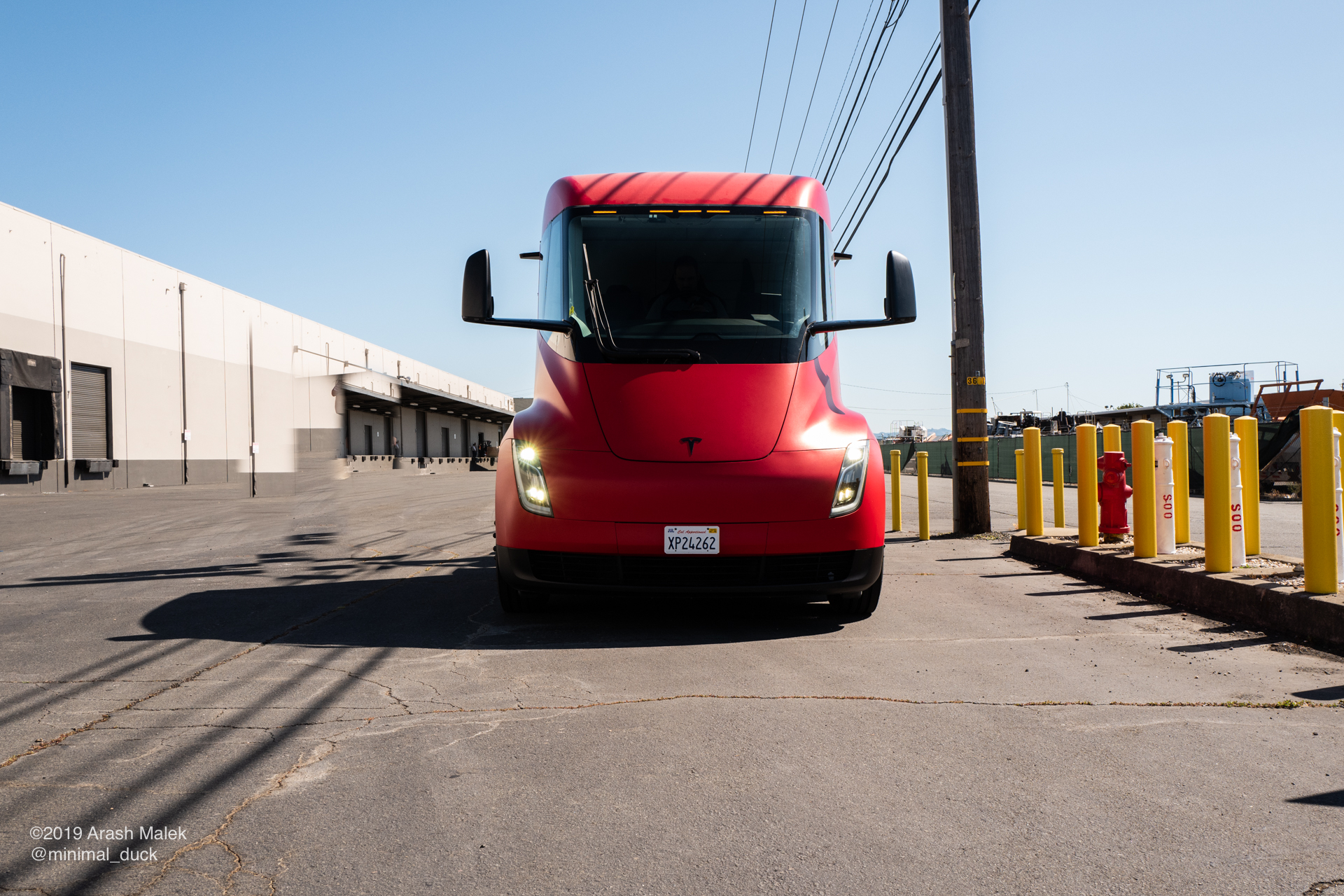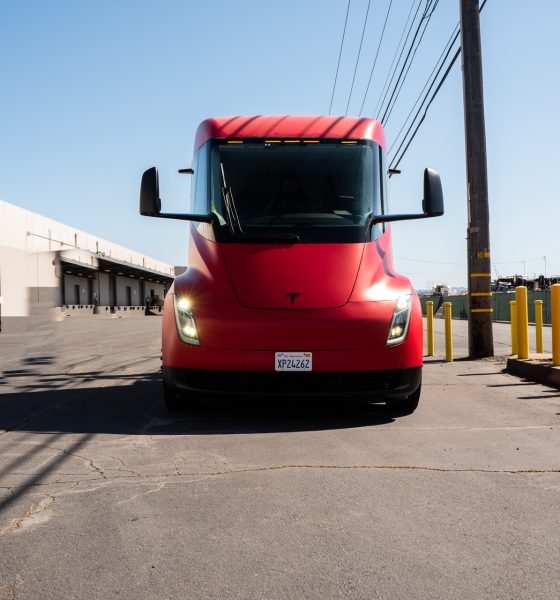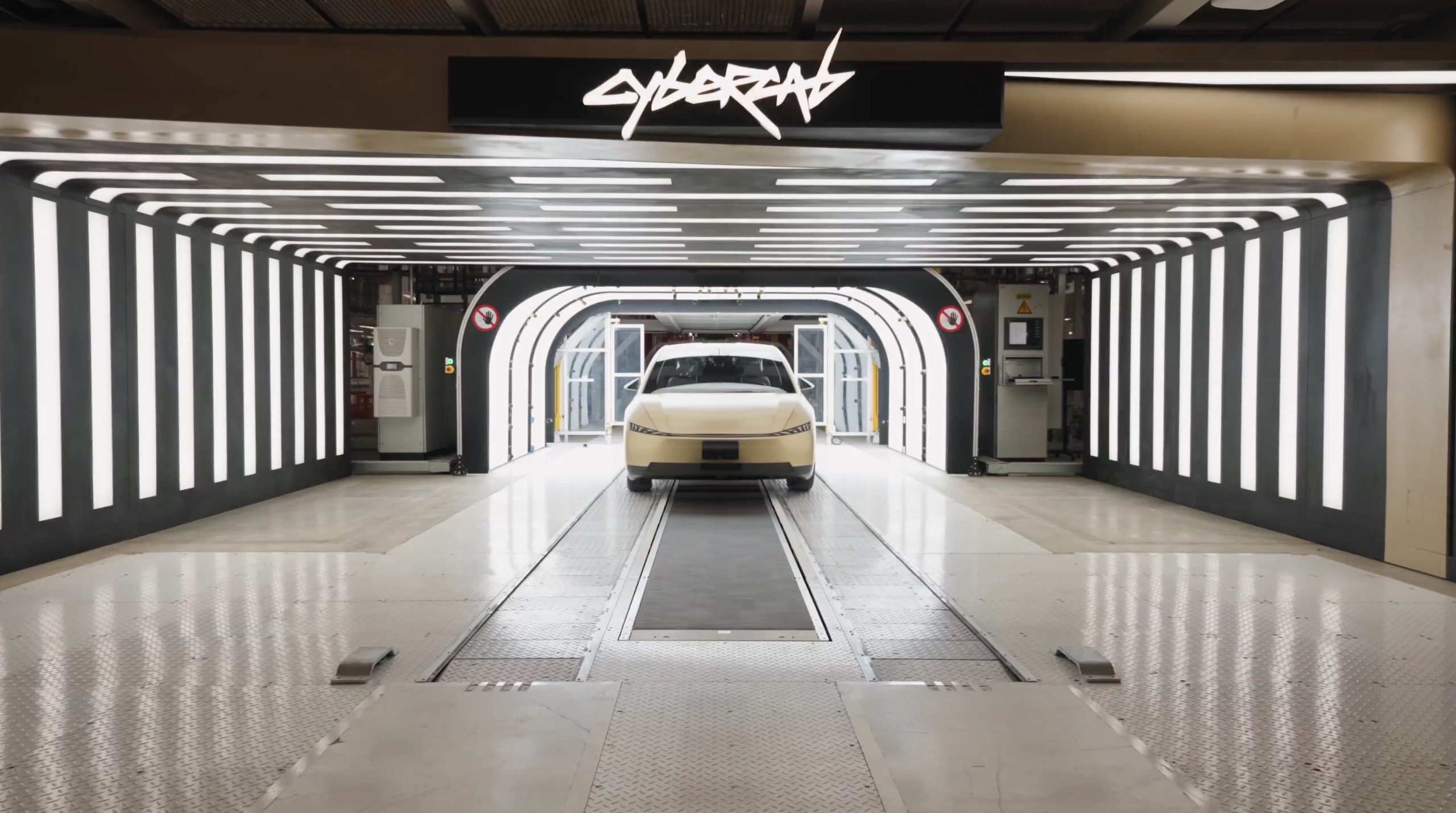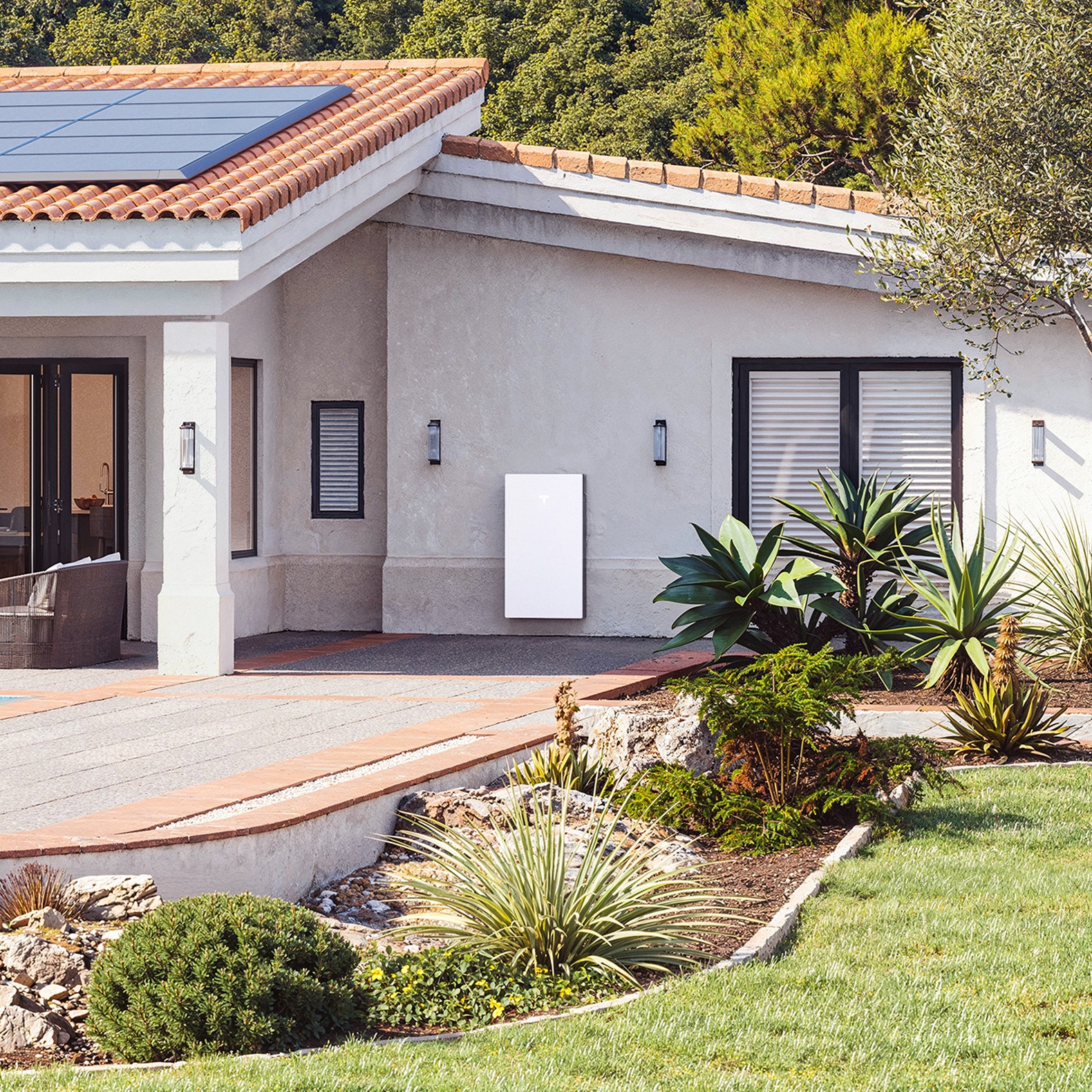

News
Tesla Semi battery weight criticisms are rooted in outdated ideas: EV expert
A good number of skeptics critical of battery-electric long-haulers like the Tesla Semi typically argue that the weight of the vehicles’ batteries makes them ineffective against competitors that are powered by diesel or hydrogen. As noted by an electric vehicle veteran and expert recently, however, these ideas are rooted in outdated ideas about battery weight. And if one considers more recent battery tech, electric Class 8 trucks may not only be feasible; they may actually be closer than expected.
In a recent piece on Bulk Distributor Magazine’s November/December 2020 issue, Auke Hoekstra, Senior Advisor for Electric Mobility at the Eindhoven University of Technology, noted that contrary to popular belief, long-haul trucks would not be the last vehicles to become battery-powered. This is in no small part due to the advancement of battery technology. Hoekstra noted that within five years, he believes that “electric trucks will become the logical choice for many bulk transporters” And within 10 years, vehicles like the Tesla Sei will likely dominate new sales.
The stunning progression of battery technology could be seen in just how much batteries have gotten better and cheaper over the years. Hoekstra noted that myths about electric trucks being too heavy were true 20 years ago, but not today. If electric long-haulers existed 20 years ago, they would likely be powered by lead-acid batteries, and assuming a battery size of 1 MWh, such a vehicle will require a pack that will likely weigh about 25 tons. That’s more than the entire payload of the truck. This is, of course, not the case today.
Hoekstra noted that when he wrote his first book about electric vehicles for the Dutch Ministry of Road Transport 13 years ago, lithium-ion batteries had started to emerge. Lithium-ion batteries offered reductions in weight, resulting in a 1 MWh pack weighing only about 10 tons. Today, this is even better, with modern electric cars having batteries that weigh about 5 kg per kWh or 5 tons per MWh. “I expect that with five years, that weight will be down to 3.5 tons. And it doesn’t stop there,” the EV veteran wrote.
Class 8 trucks like the Tesla Semi, which are designed from the ground up to be electric, will likely offer even better weight advantages. Hoekstra estimated that Tesla would see further weight reductions of about 2.5 to 3 tons due to the vehicle’s all-electric platform. “The electric motor is lighter, and you can get rid of the diesel tank and exhaust treatment. Then you place the electric motors between the wheels and lose the differential, driveshaft, and a host of other components,” he wrote.
What’s particularly interesting is that these estimates don’t even take into account the innovations that Tesla unveiled in its Battery Day event. Once Tesla’s 4680 tabless cells and structural battery packs enter the equation, the Semi becomes an even more compelling alternative to diesel-powered trucks. Hoekstra estimated that Tesla’s structural battery packs could save another ton to the Semi’s overall weight, seeing as the battery would practically displace the steel beams that give traditional Class 8 long-haulers their rigidity. With this in mind, the EV veteran noted that “battery weight will soon be a problem of the past.”
There are other advantages to electric trucks that were highlighted by Hoekstra in his piece, such as the cost savings that will result from the use of a fleet of electric trucks. This is something that Tesla has highlighted in the past, with CEO Elon Musk stating during the vehicle’s unveiling that the Semi will vastly undercut diesel-powered rivals when it comes to operating costs. Couple this with the low maintenance requirements of EVs, as well as the fact that batteries now last much longer, and trucks like the Tesla Semi will likely become very attractive options for operators in the very near future.

Elon Musk
Tesla Cybercab coming next to Giga Berlin, Optimus possibly after
“From a next major product standpoint, I think most likely is the Tesla Cybercab,” Musk said.

Tesla could add the Cybercab and Optimus humanoid robot to the production lineup at Giga Berlin, as per recent comments from CEO Elon Musk.
During a recent interview with Giga Berlin plant manager André Thierig, Musk identified the Cybercab as the most likely next major product for the German factory, with Optimus potentially following after.
“From a next major product standpoint, I think most likely is the Tesla Cybercab,” Musk said. He added that there are also “possibilities of Tesla Optimus” being produced in the facility.
Tesla has already begun production of the Cybercab in Giga Texas, with volume production expected to ramp this year. Based on Musk’s comments, it appears that if conditions align in Europe, Giga Berlin could eventually join that effort.
The CEO’s comments about Optimus coming to Gigafactory Berlin are quite unsurprising too considering that Musk has mentioned in the past that the humanoid robot will likely be Tesla’s highest volume product in the long run.
Giga Berlin will likely be able to produce mass volumes of Optimus, as the Model S and Model X lines being converted to an Optimus line in the Fremont Factory are already expected to produce 1 million units of the humanoid robot annually.
Apart from his comments about the Cybercab and Optimus, Elon Musk also confirmed that Giga Berlin has started ramping battery cell production and will continue expanding Model Y output, particularly as supervised Full Self-Driving (FSD) gains regulatory approvals in Europe.
Taken together, the remarks suggest Berlin’s role could evolve beyond vehicle assembly into a broader multi-product manufacturing hub, not just a regional Model Y plant.
Energy
Tesla Powerwall distribution expands in Australia
Inventory is expected to arrive in late February and official sales are expected to start mid-March 2026.

Supply Partners Group has secured a distribution agreement for the Tesla Powerwall in Australia, with inventory expected to arrive in late February and official sales beginning in mid-March 2026.
Under the new agreement, Supply Partners will distribute Tesla Powerwall units and related accessories across its national footprint, as noted in an ecogeneration report. The company said the addition strengthens its position as a distributor focused on premium, established brands.
“We are proud to officially welcome Tesla Powerwall into the Supply Partners portfolio,” Lliam Ricketts, Co-Founder and Director of Innovation at Supply Partners Group, stated.
“Tesla sets a high bar, and we’ve worked hard to earn the opportunity to represent a brand that customers actively ask for. This partnership reflects the strength of our logistics, technical services and customer experience, and it’s a win for installers who want premium options they can trust.”
Supply Partners noted that initial Tesla Powerwall stock will be warehoused locally before full commercial rollout in March. The distributor stated that the timing aligns with renewed growth momentum for the Powerwall, supported by competitive installer pricing, consumer rebates, and continued product and software updates.
“Powerwall is already a category-defining product, and what’s ahead makes it even more compelling,” Ricketts stated. “As pricing sharpens and capability expands, we see a clear runway for installers to confidently spec Powerwall for premium residential installs, backed by Supply Partners’ national distribution footprint and service model.”
Supply Partners noted that a joint go-to-market launch is planned, including Tesla-led training for its sales and technical teams to support installers during the home battery system’s domestic rollout.
Elon Musk
Tesla Giga Berlin growth could stall if not “free from external influences”: Elon Musk
The comments were delivered in a pre-recorded video discussion.

Tesla CEO Elon Musk has reportedly warned that future expansion of Gigafactory Berlin could be jeopardized if the site does not remain “free from external influences.”
Musk’s comments were delivered in a pre-recorded video discussion with employees and came at a sensitive moment for the facility, where union representation has been a recurring issue.
According to reports from Handelsblatt and Der Spiegel, citing participants at the event, Musk suggested that if Giga Berlin is no longer “free from external influences,” further expansion would become unlikely. He did not, however, hint that the plant would shut down.
While Musk did not name IG Metall directly, his remarks were widely interpreted as referencing the union, which is currently the largest faction on the works council but does not hold a majority, as noted in an electrive report.
The video conversation was conducted between Musk in Austin and Grünheide plant manager André Thierig, then played back to the workforce in Germany. Works council elections are scheduled for early March, heightening the tension between management and organized labor.
The CEO has previously voiced concerns that stronger union influence could limit Tesla’s operational flexibility and long-term strategy in Germany.
Despite the warning on expansion, Musk praised the Giga Berlin site during the same address, describing it as one of the most advanced factories worldwide and highlighting its cleanliness and team culture.
The discussion also reportedly touched on battery cell production. According to attendees cited in German media, Musk indicated that Tesla has begun ramping cell production at the site. That would mark a notable shift from earlier expectations that large-scale cell manufacturing in Brandenburg would not begin until 2027.








